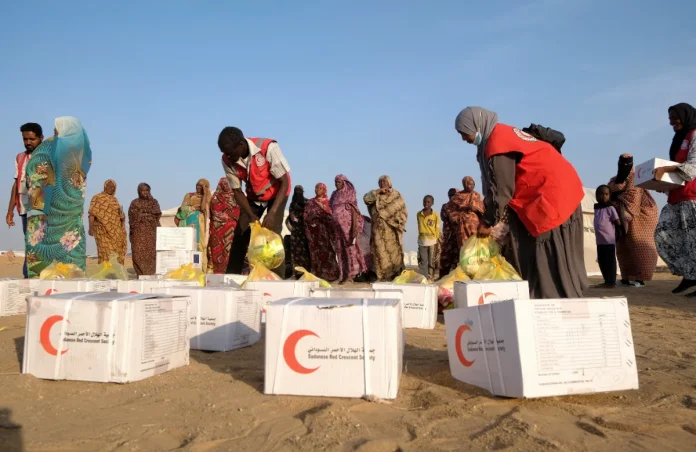CAIRO: Humanitarian workers in Sudan’s Darfur region are being forced to “choose who to save” due to critically insufficient resources, according to aid group Handicap International’s logistics chief Jerome Bertrand.
After more than two years of war between the Sudanese army and the paramilitary Rapid Support Forces, needs have reached overwhelming levels.
Bertrand described the situation as an “inhumane dilemma that humanitarian actors have to face and it goes completely against our values”.
Teams are prioritising children, pregnant women and breastfeeding mothers “in the hope that others can hold on”.
Bertrand spoke after returning from a three-week mission to assess aid logistics in the region.
The conflict in Sudan, which began in April 2023, has killed tens of thousands and displaced nearly 12 million people.
The UN describes it as the world’s largest displacement and hunger crisis.
Conditions in Darfur have deteriorated sharply since the RSF seized the North Darfur capital of El-Fasher on October 26.
The city was the army’s last stronghold in the region.
The UN-backed Integrated Food Security Phase Classification Initiative confirmed this month that El-Fasher is facing famine.
Famine has raged in surrounding displacement camps for over a year.
Aid groups face immense challenges with no functional infrastructure across Darfur. None of the region’s airports can receive aid, roads are often impassable, and the only access point through neighbouring Chad faces “administrative obstacles”.
Bertrand described “exorbitant costs and insufficient international funding” compounding the crisis.
He said the partial suspension of US aid had resulted in a loss of “70% of aid” to Darfur, leaving barely “a quarter of needs” covered.
The logistics chief portrayed a “state of anarchy” with total collapse of government structures and rampant banditry.
Security threats on roads include “extortion, theft, assaults and arrests” against aid convoys.
“It’s the entire supply of an area the size of France, with 11 million inhabitants, moving partly on the backs of donkeys,” Bertrand said of the desperate logistics operation.
In Tawila, a refuge town now sheltering more than 650,000 people, Bertrand encountered people who “have absolutely nothing left”.
Aid organisations remain unable to meet overwhelming demand.
He described “80,000 people stranded” along Darfur’s roads, many subjected to violence, extortion or ransom demands.
Those reaching Tawila often show signs of malnutrition, injuries from torture and gunshot wounds.
Bertrand accused the international community of allowing armed groups to “kill each other” while the country decays.
He noted that “in another era, there would have been a United Nations resolution sending a peacekeeping force”.








